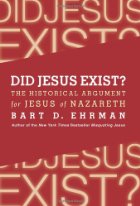What we can and cannot know

I confess I have often shown little patience for people who hide behind the label of agnosticism when asked whether they believe in God. It smacks of evasion, since it answers a question concerning belief with an assertion about the state of knowledge. That is, it redirects our attention to the axis of knowing — how much we know or can know — instead of telling us where one stands on the axis of believing.
So you can perhaps imagine how annoyed I’ve become at myself lately for describing my own position on the historicity of Jesus as “Jesus agnostic.” Have I fallen into the same trap as atheistic agnostics, too timid to answer the question that was asked, so I answer one that wasn’t?
Does agnosticism describe anything meaningful?
Most atheists are also agnostics. We lack the belief in God in the same way that we lack the belief in many things we can’t definitively disprove. However, we hold the existence of a supernatural being that fits the description of God to be so unlikely that we operate under the assumption that he does not exist.
Do we actively believe God does not exist? Actually, no. It takes no effort at all to lack a belief. For example, if you grew up as a Christian, you probably lack the belief in the transmigration of souls. Same here. People might reincarnate after they die, but I think it’s extremely unlikely. So I can truthfully say, “I don’t believe in samsara.” But I don’t spend any time thinking about it or actively disbelieving in it.
If by knowledge we mean rational knowledge based on human reason and physical evidence, a good many Christians are also agnostics. They believe without proof — “blessed are they that have not seen, and yet have believed.” (John 20:29b, KJV) They have made the “leap of faith.” Should they claim to have any knowledge at all, they will maintain they possess a knowledge of the heart, a feeling of the divine presence.
So if a great many of us — theists and atheists alike — agree that we can’t know whether God exists, is the term “agnostic” all that meaningful? Well, it is if you mean it in the loose, vernacular way that the popular media often intends it, namely as a description of someone who cannot decide. Perpetual fence-sitters, they simply can’t make up their minds. Continue reading “Jesus Agnosticism: Believing vs. Knowing”

